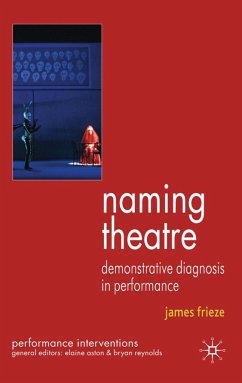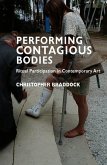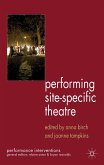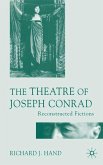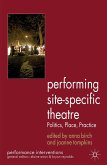Reading a range of work from the US and UK over the last two decades, this is an innovative study of theatre's growing obsession with technologies and effects of naming. How does theatre reflect, and intervene in, naming practices across domains such as philosophy, computing, journalism, anthropology, advertising, military training, and genetics?
'Naming Theatre offers readers a comprehensive understanding of how names populate theatre and how they structure knowledge about a play. This book is an important contribution to the field...[and] prompts theatre scholars to expand the discourse related to their work (something which is frequently ignored) by establishing ways of questioning it.' - Stella Keramida, Platform
''Naming' is James Frieze's key term in a critique of identity and identification, which he sees as both a theme and a technique in contemporary theatre and performance... The book's strength and its substance is the exegesis of text and performance, through an ingenious variety of examples of naming as a process which embeds the subject in language, or alternatives strategies which manipulate naming to satirize or escape from such an inscription. It is the level of detail and the application of a mutating but consistent insight that is impressive here, and the book will be as useful as a collection of performance analyis as for its overall thesis.' - Gareth White, NTQ
''Naming' is James Frieze's key term in a critique of identity and identification, which he sees as both a theme and a technique in contemporary theatre and performance... The book's strength and its substance is the exegesis of text and performance, through an ingenious variety of examples of naming as a process which embeds the subject in language, or alternatives strategies which manipulate naming to satirize or escape from such an inscription. It is the level of detail and the application of a mutating but consistent insight that is impressive here, and the book will be as useful as a collection of performance analyis as for its overall thesis.' - Gareth White, NTQ

